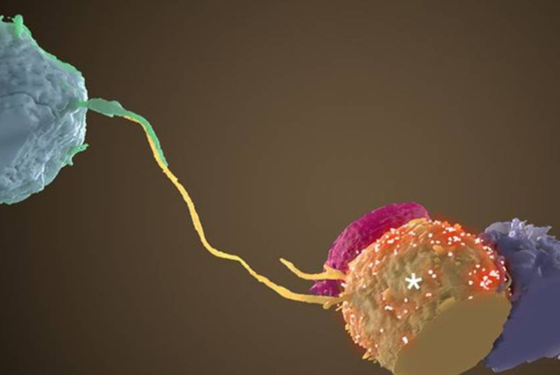
By Sofia Montoya-Deck
Hood College and the Frederick National Laboratory for Cancer Research (FNL) are together holding a scientific symposium titled “HIV in 2024: Progress, Problems & Prospects” on Hood’s campus from Sept. 23-25.
The symposium features scientists and clinicians speaking on HIV (human immunodeficiency virus) and AIDS (acquired immunodeficiency syndrome) research and clinical care.
According to the World Health Organization (WHO), HIV is a virus that attacks the body’s immune system by targeting white blood cells, making it easier to become sick with diseases such as tuberculosis, infections and some cancers. HIV spreads through the direct contact of the bodily fluids of an infected individual. When left untreated, HIV can progress to AIDS.
The symposium’s keynote address will be on Monday, Sept. 23 at 7:30 p.m. in Hodson Auditorium. Salim S. Abdool Karim, director of the Centre for AIDS Program of Research in South Africa, will discuss “Reaching the 2030 SDG Target for AIDS: Success, Challenges and Prospects.” Karim acts as a special adviser to the director-general of WHO.
Karim is known for his work as a clinical infectious diseases epidemiologist. He has made research contributions in HIV prevention and treatment and is a co-inventor on patents that habe been used in several HIV vaccine candidates. Karim’s keynote address is free and open to the public, with advanced registration required.
This year’s symposium is the third installment in a series of collaborations between Hood College and the FNL. Previous symposiums have focused on AI in cancer research and clinical care and imaging science and cancer biology.
Led by FNL investigators Mary Carrington, Ph.D. and Jeffrey Lifson, M.D., the three-day event will feature numerous leading scientists and clinicians sharing HIV/AIDS research and clinical care and highlighting recent progress, lingering challenges and approaches to overcome such challenges.
The symposium is directed toward students, trainees, active researchers, clinicians and those who are not presently engaged directly in HIV research.
Carrington is the director of the FNL’s Basic Science Program, where she oversees a group of scientists working on investigator-initiated, hypothesis-driven basic research in cancer and AIDS. Lifson is the director of the AIDS and Cancer Virus Program, which investigates ways to diagnose, prevent and treat HIV infection and AIDS-related tumors associated with cancer viruses.
The symposium’s distinguished opening plenary lecture was originally going to be delivered by Dr. Anthony Fauci, who served as the director of the National Institute of Allergy and Infectious Diseases (NIAID) at the National Institutes of Health from 1984 to 2022. However, as he is still recovering from a bout of West Nile Fever virus, he is unable to attend the symposium.
In Fauci’s absence, Dr. Clifford Lane, director of Clinical Research and Clinical Director at NIAID, will deliver the lecture. Lane, who has worked with Fauci on many key developments in HIV research and clinical care will discuss his experiences in his talk titled “HIV/AIDS: Then and Now.” This opening plenary lecture will take place from 8:15-9 a.m. on Tuesday, Sept. 24, in Hodson Auditorium.
The symposium will continue with five additional sessions spanning two days: “Vaccine Prevention,” “Non-Vaccine Prevention: bNAbs and Long-Acting Antiretrovirals,” “Treatment of HIV Infection: State of the ART,” “CNS Infection in HIV,” and “HIV Rebound Competent Viral Reservoir and Towards a Cure.”
The symposium will conclude on Wednesday, Sept. 25, with closing remarks from Carrington and Lifson.
##

Be the first to comment